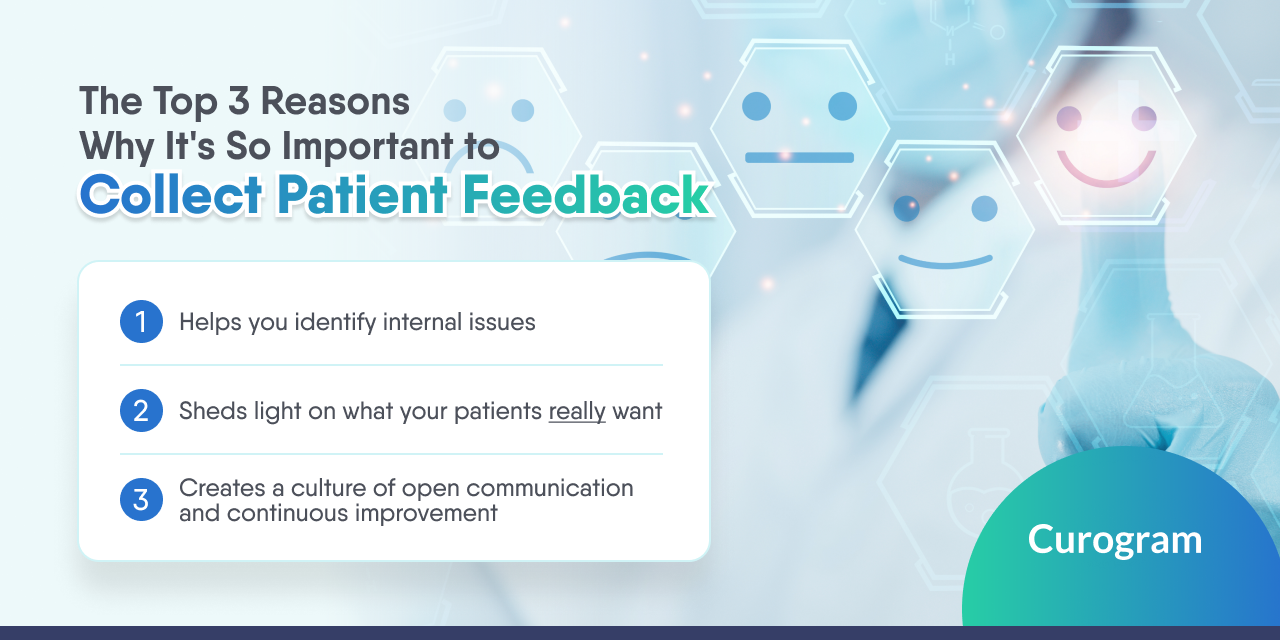Does Getting Paid Faster Begin with Better Patient Engagement?
Medical payment collection keeps the lifeblood of every medical practice running. The business's longevity depends not only on the number of patients...

Patient feedback is a critical factor in healthcare quality systems. It paves the way for transparency and accountability in healthcare. It’s about collecting, evaluating, and responding to patient comments and complaints.
The success of your medical practice does not depend entirely on your proficiency, your team’s efficiency, or the quality of your services. Patients have a significant say in the growth of your practice because, without them, you cannot exist.
The medical industry highly values patient feedback because it helps point out areas that need improvement and factors that enhance care experiences. Here are 3 major benefits of evaluating patient feedback and how to get it from patients.
Patient feedback is critical in understanding how patients perceive your practice. There is no better way to develop and implement effective changes into your practice than by receiving and evaluating patient feedback.
To identify internal issues and resolve gaps that might be affecting your patient retention and revenue, you must gain insight into what patients think of you. By evaluating and cultivating patient feedback, you have a better idea of where your practice stands in the heart of patients. You can then use the information to improve your services, enhancing the quality of care you provide.
Typically, you only have a short window to engage patients and address their concerns and needs. Feedback intends to provide you with information about your practice through the eyes of your patients.
Patient feedback is synonymous with patient experience and patient satisfaction. They tell how well a patient feels after the treatment. Patients have positive and negative experiences in healthcare. By gathering feedback, you know your service's good and bad aspects, which helps you improve a patient’s future experiences.
For example, did your patient have a smooth booking experience with your online scheduling system? Do they find it unnecessary to receive two appointment reminders a day before their appointment? What was their experience with staff?
Through patient feedback, you get a holistic and sometimes very detailed understanding of how the patient perceives certain aspects of your practice — some may be blind spots for you. When patients feel valued and happy with your practice, they tell other people, especially family and friends, and even leave positive reviews online, boosting your reputation. When they feel otherwise, the reverse is the case. No one wants that.
Unless you understand a patient’s experience, improving and keeping up with patients’ varying needs and wants can be challenging. The best strategy for your practice to stay relevant and at the top of your game is to build a culture of open communication among staff by openly sharing and analyzing patient feedback.
Gathering and evaluating patient feedback gives you and your team the ability to maximize performance and improve, whether through managing your workflow or introducing new services.
Getting feedback from patients can be challenging, so you must have effective communication skills. Aside from receiving positive patient feedback, you must make sure that the comments are sensible and significant to your medical practice.
The key to drawing out helpful feedback from patients is to ask questions that allow them to think and reflect. Here are some questions you may ask your patients regarding their experience with your practice:
It is best to ensure that the patient gives feedback on time because reflection works best when their memory is still fresh, usually right after the service is completed. More importantly, patients leave valuable feedback if they know their experience matters to you.
An easy way to collect and evaluate patient feedback is through text messaging. While directly asking patients about their experience with your practice is beneficial, some patients are unwilling to discuss feedback directly with their doctors. That is why online reviews are popular.
An excellent way to ask a patient for an online review is through a secure communication channel such as 2-way text messaging. Curogram’s platform allows you to text patients in a HIPAA-compliant manner. The system automatically encourages online reviews from satisfied patients. Looking to collect your first online feedback, start with Curogram.

Medical payment collection keeps the lifeblood of every medical practice running. The business's longevity depends not only on the number of patients...

Patients have the right to talk about their healthcare experiences through reviews or feedback. Collecting positive patient reviews is an easy and...

When physicians decide to pursue an independent medical practice, they move from just physicians to entrepreneurs. Running a healthcare clinic...